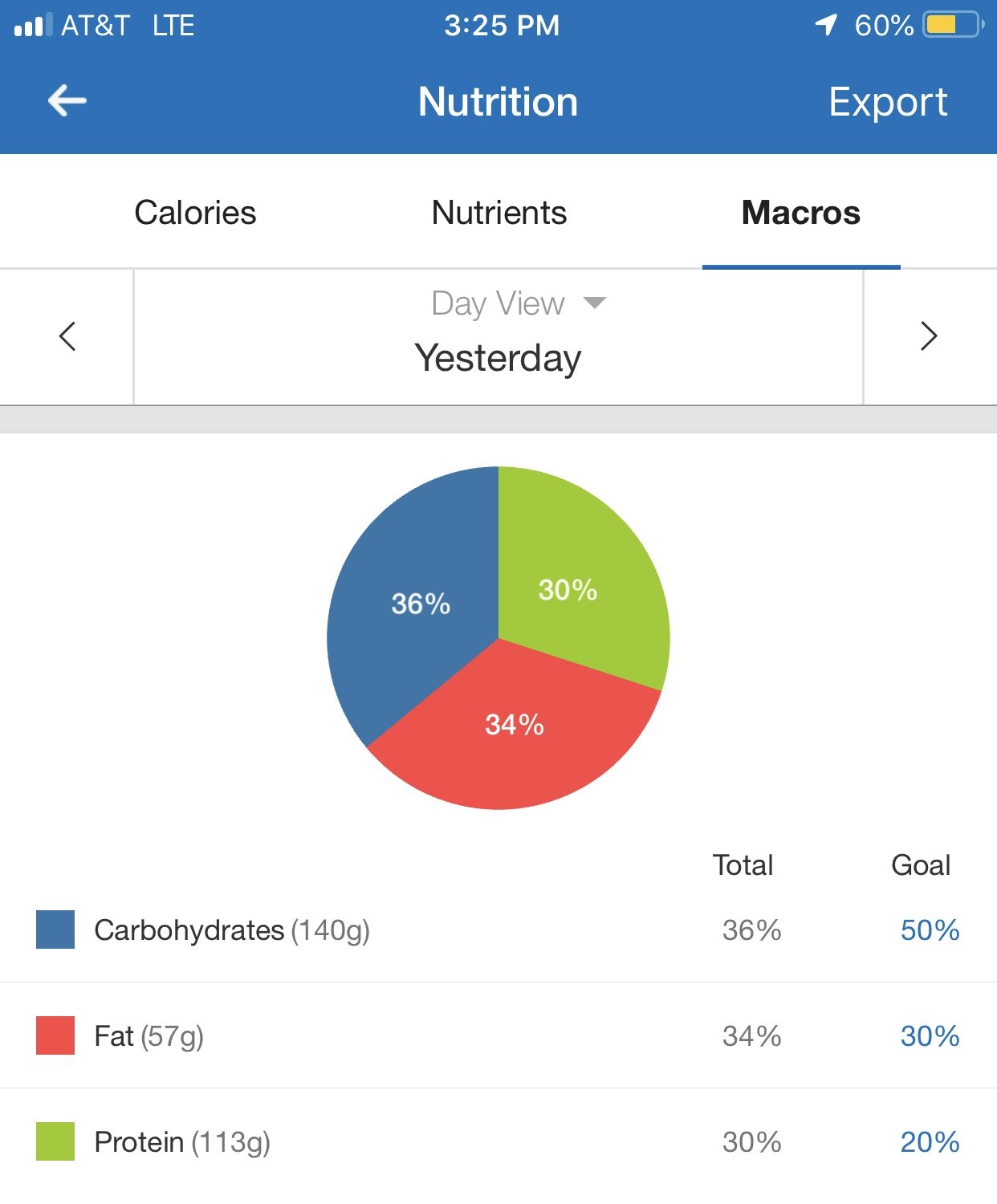The Benefits of Tracking Protein Intake in a Daily Exercise Program for Longevity
Protein is a crucial component of a healthy diet, especially when it comes to building and maintaining muscle, supporting recovery, and enhancing overall health. However, many people overlook the importance of tracking their protein intake, which can be a game-changer for achieving long-term fitness goals and promoting longevity. In this blog, we'll explore the benefits of protein tracking, share insights from top scientists, and discuss how Coach Ray Traitz has helped clients optimize their protein intake for better results.
Why Track Your Protein Intake?
Tracking protein intake ensures that you're consuming enough to meet your body's needs, particularly if you're engaged in regular exercise. Whether you're looking to build muscle, lose fat, or maintain overall health, getting the right amount of protein is essential.
1. Supports Muscle Growth and Repair
Protein is the building block of muscle. Ensuring adequate intake helps repair muscle tissue after workouts, leading to growth and strength gains.
2. Enhances Recovery
Sufficient protein intake can speed up recovery by providing the necessary nutrients for muscle repair, reducing soreness, and allowing you to train more consistently.
3. Promotes Satiety and Fat Loss
Protein is more satiating than carbs or fats, helping to control appetite and support fat loss by reducing overall calorie intake.
Insights from Leading Scientists
1. Dr. Stuart Phillips, Ph.D.
Muscle Protein Synthesis: Dr. Phillips emphasizes the role of protein in stimulating muscle protein synthesis, which is critical for muscle growth and maintenance.
Aging and Protein Needs: His research highlights the increased need for protein as we age to prevent muscle loss and support metabolic health.
Protein Distribution: Dr. Phillips also advocates for distributing protein intake evenly throughout the day to maximize muscle protein synthesis.
2. Dr. Donald Layman, Ph.D.
Leucine Threshold: Dr. Layman’s work focuses on the importance of leucine, an amino acid found in protein, in triggering muscle protein synthesis. He stresses the need to reach a “leucine threshold” with each meal.
Metabolic Health: His studies show that higher protein diets can improve metabolic health, reduce body fat, and support muscle maintenance.
Protein Timing: Dr. Layman suggests that consuming protein at the right times, particularly post-workout, can enhance recovery and muscle growth.
3. Dr. Gabrielle Lyon, D.O.
Muscle-Centric Medicine: Dr. Lyon promotes a muscle-centric approach to health, where adequate protein intake is essential for maintaining muscle mass and metabolic health.
Longevity and Protein: She argues that protein is crucial for longevity, particularly in preventing age-related muscle loss (sarcopenia).
Quality of Life: Dr. Lyon’s research suggests that maintaining muscle mass through proper protein intake can improve quality of life as we age.
Case Studies: Real-World Results
1. Tom’s Transformation
Tom, a 45-year-old client, struggled to gain muscle despite regular training. After working with Coach Traitz to track his protein intake and ensure he was meeting his daily needs, Tom saw significant improvements in muscle mass and strength.
2. Sarah’s Success
Sarah, a 30-year-old client, wanted to lose fat while preserving muscle. Coach Traitz helped her track her protein intake, which led to better satiety, reduced calorie consumption, and a leaner physique.
3. Mark’s Muscle Maintenance
Mark, a 60-year-old client, was concerned about losing muscle as he aged. By tracking his protein intake with Coach Traitz’s guidance, Mark was able to maintain his muscle mass and improve his overall health.
Practical Tips for Tracking Protein Intake
1. Determine Your Protein Needs
Aim for 1.2 to 2.2 grams of protein per kilogram of body weight, depending on your goals and activity level.
2. Use a Food Diary or App
Tools like MyFitnessPal can help you log your daily protein intake and ensure you’re hitting your targets.
3. Prioritize Protein with Every Meal
Include a source of high-quality protein (e.g., lean meat, fish, eggs, dairy, or plant-based options) in every meal.
4. Spread Your Protein Intake
Distribute your protein intake evenly across meals to maximize muscle protein synthesis.
5. Consider Protein Supplements
If you’re struggling to meet your protein needs through food alone, consider supplements like whey or plant-based protein powders.
Conclusion: Achieve Your Fitness Goals with Coach Ray Traitz
Tracking protein intake is a simple yet powerful strategy to enhance your fitness results and promote longevity. For personalized guidance on how to optimize your protein intake and integrate it into your daily exercise routine, consider hiring Coach Ray Traitz. With extensive experience and a passion for helping clients achieve their goals, Coach Traitz can help you track your protein intake, build muscle, and improve your overall health.
To learn more or schedule a consultation, contact Coach Ray Traitz at amrapfitness@hotmail.com.


